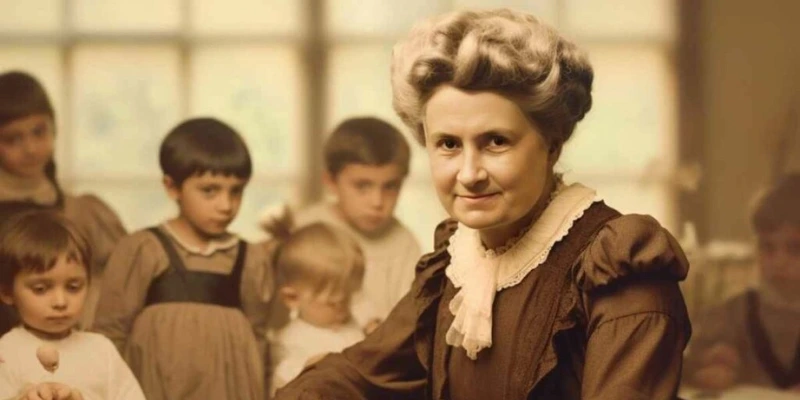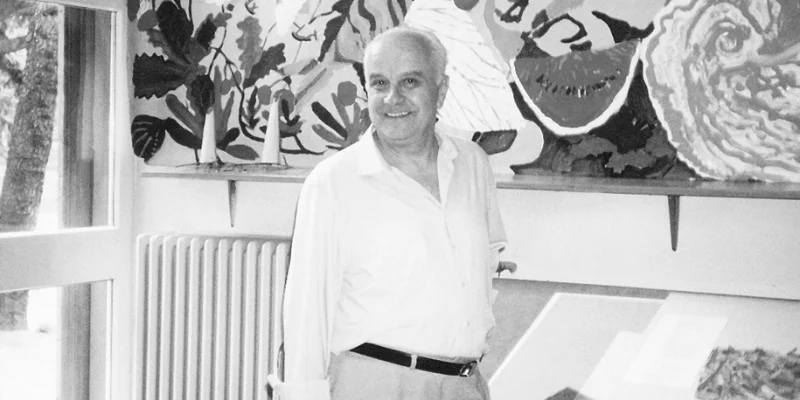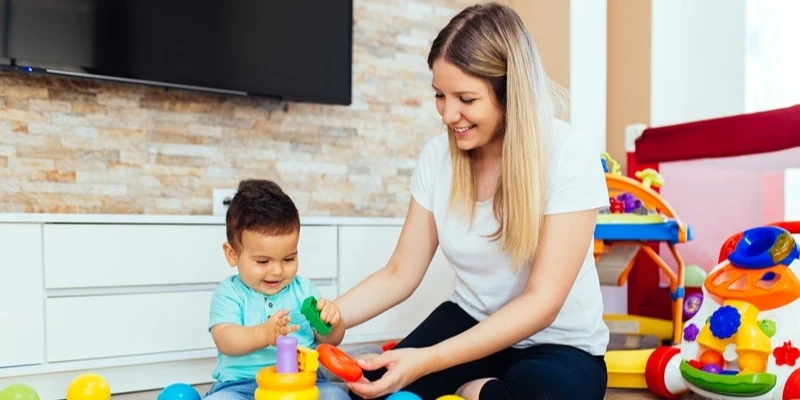
Early Learning Approaches in Early Childhood
An Australian Parent’s Guide
Choosing a childcare philosophy can feel overwhelming. In Australia there are several Early Learning Approaches—including Montessori, Reggio Emilia, Steiner/Waldorf, and Play-Based Learning—and each shapes the daily experience a little differently. Some approaches emphasise independence and hands-on materials; others lean into collaborative projects, rhythm and nature, or intentional play across learning areas. Understanding the core ideas behind these Early Learning Approaches helps you match a service to your child’s temperament and your family values.
It’s important to remember that an approach is a teaching philosophy, not a quality rating. All approved services are regulated under the National Quality Framework (NQF), assessed against the National Quality Standard (NQS), and plan learning with the Early Years Learning Framework (EYLF). In other words, quality and safety are overseen nationally—then each approach adds its own flavour to how learning looks and feels. Many services are also CCS-eligible when approved, regardless of which approach they use.
This guide gives you a clear, parent-friendly overview of the main Early Learning Approaches, shows how they fit within the NQF/EYLF, and offers practical tips for choosing the right fit—what to look for on a tour, questions to ask, and how to read ratings alongside philosophy.
Key point: an approach is a teaching philosophy, not a quality rating. All approved services in Australia are assessed against the National Quality Standard (NQS) and guided by the EYLF — no matter which approach they follow.
Links you may want on hand:
• National Quality Standard (NQS)
• Early Years Learning Framework (EYLF)
• Find Childcare Directory
• Child Care Subsidy (CCS) Guide
• Child Care Subsidy Calculator
Why Early Learning Approaches Matter
Early Learning Approaches help families match a service’s values and daily experience with their child’s temperament and their own priorities (structure vs fluidity, low-tech vs blended tech, nature focus, cultural fit, etc.). Regardless of the approach, approved services are:
• Regulated and assessed under the NQF and NQS
• Guided by the EYLF (or MTOP for school-aged care)
• Potentially eligible for CCS if the service is approved and you meet CCS criteria
So, think of the approach as flavour — and the NQS/EYLF as the standard recipe that ensures safety, quality, and learning outcomes.
Early Learning Approaches at a Glance
Montessori
- Core philosophy: independence, self-direction, “prepared environment” with hands-on materials
- Educator role: guide/observer; supports choice within clear limits
- Environment: ordered, calm, child-sized; real-life “practical life” materials
- Grouping: mixed ages (often 3-year spans)
- Documentation: individual observation; less whole-group “teacher-led” time
- Best for families who value: independence, focus, minimal worksheets/screens

Reggio Emilia
- Core philosophy: child-led inquiry, projects, collaboration; the environment as the “third teacher”
- Educator role: co-researcher; listens, provokes thinking, documents learning
- Environment: studio-like (“atelier”), open-ended resources, visible documentation panels
- Grouping: flexible, collaborative small groups
- Documentation: rich displays of children’s words, photos, artefacts
- Best for families who value: creativity, collaboration, visible learning stories

Steiner/Waldorf
- Core philosophy: rhythm, imagination, nature, whole-child (head/heart/hands), low-tech
- Educator role: gentle guide; emphasis on seasonal rhythms and storytelling
- Environment: warm, natural materials, crafts, outdoor time
- Grouping: often multi-age; strong daily/seasonal rhythm
- Documentation: narrative observations; emphasis on wellbeing and social development
- Best for families who value: predictable rhythm, imaginative play, low-tech/nature focus
Play-Based Learning (mainstream EYLF-aligned)
- Core philosophy: intentional play as the pathway to learning (language, numeracy, social skills)
- Educator role: plans “provocations”, extends play with questions and resources
- Environment: varied areas (blocks, home corner, outdoor, art, literacy)
- Grouping: age-based rooms; small-group and whole-group times
- Documentation: learning stories, photos, program plans linked to EYLF outcomes
- Best for families who value: broad, flexible programs commonly found across centres

Tip: Use this as a starting point, then visit each centre — the quality of implementation matters more than the label.
Which Philosophy Best Aligns with Your Child’s Needs?
How to Choose the Right Early Learning Approach
Your child’s temperament and interests
• Thrives with order and independence? Consider Montessori.
• Lights up with collaborative projects and creativity? Consider Reggio Emilia.
• Needs a gentle, rhythmic day with nature and imagination? Consider Steiner/Waldorf.
• Enjoys varied play areas and teacher-supported play? Play-Based will feel familiar.
Your family’s preferences & practicalities
• Structure vs flexibility; nature/low-tech vs blended tech
• Mixed-age rooms vs age-based rooms
• Availability in your suburb, opening hours, fees, waitlists
• Educator qualifications and staff stability
Quality first, philosophy second
• Check NQS ratings and ask how the approach supports QA1 (Program & Practice), QA5 (Relationships), and QA7 (Governance & Leadership).
• Confirm the service is approved if you plan to claim CCS (see CCS guide and calculator).
Calls to action
• Find Childcare near you.
• Understand quality ratings: National Quality Framework and National Quality Standard
• Estimate your costs with our free Child Care Subsidy Calculator.
Early Learning Approaches – Mini Guides
Children choose purposeful activities from a carefully prepared environment. Educators (“guides”) observe and support rather than direct, building concentration, coordination, and independence. You’ll often see real-life materials (pouring, cleaning, cooking), sensorial materials, and mixed-age rooms.
Relevant Montessori Resources:
Montessori Childcare in Goulburn — read how these early learning approaches are applied
Montessori Australia — official national peak body
Learning unfolds through long-term projects driven by children’s interests. Documentation (photos, transcripts of children’s words, sketches) makes thinking visible. Spaces are set up like studios, with natural light and open-ended resources.
Relevant Reggio Emilia Resources:
REAIE — Reggio Emilia reference organisation in Australia
A strong daily/seasonal rhythm anchors imaginative play, songs, storytelling, crafts, and outdoor time. Natural materials and low-tech environments support sensory integration and calm focus.
Relevant Steiner/Waldorf Resources:
Steiner Education Australia — national peak body.
Intentional play, guided by the EYLF, develops language, early maths, problem-solving, self-regulation, and social skills. Educators plan provocations and extend children’s ideas with questions, resources, and small-group learning.
Note: Some services blend elements from different approaches — ask how they maintain coherence and align with the EYLF and NQS.
How Early Learning Approaches Connect to Quality (NQF/NQS)
No approach guarantees high quality on its own. Quality is demonstrated through:
• QA1: Intentional teaching, assessment, and planning for each child
• QA2: Health, safety, and wellbeing practices you can see in action
• QA5: Warm, responsive relationships and positive behaviour guidance
• QA7: Stable leadership, clear policies, and a living Quality Improvement Plan
When you tour, ask educators to show how their approach lives inside these quality areas. See: National Quality Standard
Questions to ask on a Centre Tour
- “How does your approach support my child’s interests and current learning?”
- “What does a typical morning look like here?” (Look for uninterrupted play/work cycles.)
- “How do you observe and document learning? Can you show me examples?”
- “How do you balance choice with limits and safety?”
- “How do you support additional needs or sensory differences?”
- “How does your approach align with the NQS and EYLF?”
- “What is staff turnover like? Who leads curriculum?”
- “If siblings have different needs, how can you accommodate that?”
Early Learning Approaches – FAQs
Next Steps
- Explore specific approaches in depth:
- Find Childcare in your area.
- Understand quality ratings: National Quality Framework and National Quality Standard.
- Plan your budget with the Child Care Subsidy Calculator.